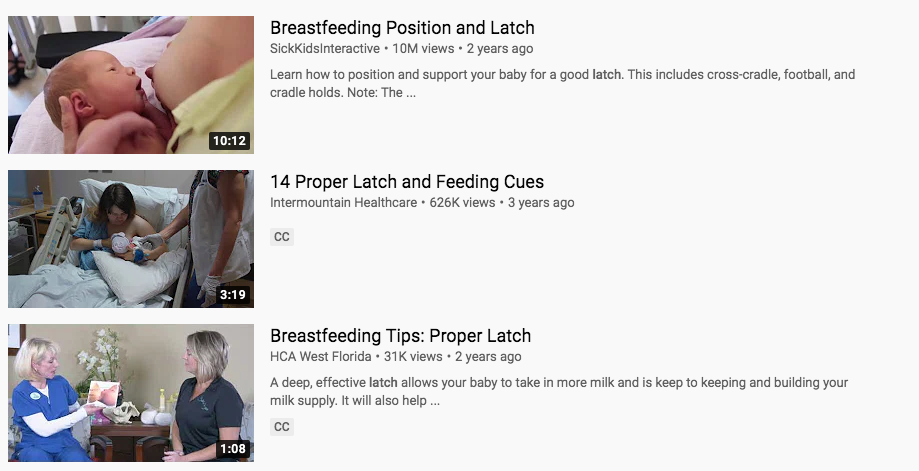Breastfeeding : Lessons learned
- talofakids

- Aug 6, 2020
- 4 min read
The following post is my [Caroline] personal experience with breastfeeding my children and it does not aim to replace medical advice from a trained medical professional.
I have two children. Born in different hospitals, in different countries. One in Australia and one locally in Samoa.
Experience #1
When my first baby was born, he was immediately placed on my chest, I cut his cord and he was only taken away from me for a few moments for the standard checks and then placed back on my chest. Since I'd had an epidural, I was only able to move my upper body. The midwives helped with positioning my baby boy so that he could find his way to the nipple to feed, whilst I was still lying down. For an hour or so, I was able to experience skin-to-skin bonding and watch him learn how to latch correctly and suckle before I was wheeled off to my room. There was no breastmilk (not that I could see anyway) but when he cried, I was told to keep "feeding" him anyway. At one point, a midwife came over with a syringe to extract the colostrum [thick "liquid gold" breastmilk that's produced in the first 24hours] straight from my already sore nipples. Despite the pain, I was grateful she had something to give to my baby.
Lesson 1: Your breastmilk doesn't arrive until a day or two after your baby is born. Don't panic if you think your baby isn't getting enough. Their stomachs are so tiny (size of a pea) and though you might not think the small amount of colostrum will keep your baby happy, it's quality over quantity in this case. [DO NOT give your baby water]

Source: Wikipedia Commons
All the pre-baby prep (hello Kegels and padsicles) didn't even prepare me for the pain my breasts went through over the next few days at home. I admit that the pain was so bad that I ended up giving my baby formula so my nipples could have a break (Note: I toughened up for my 2nd baby and just cried through it ha!). By the time, the midwife visited us for the mummy and baby check, I had begun to have flu-like symptoms and my breasts were rock hard. "You're engorged. You have to empty your breasts." So the warm flannels came on and I began pumping. I hadn't even known that the breastmilk had "come in".
Lesson 2: Be prepared for engorgement and nipple pain. Warm flannels or warm shower for the breasts and soothing, healing ointment for the nipples. Try and choose a nipple ointment that is safe to be left on, to save you wiping them again before each feed.
My baby boy continued to be breastfed and formula-fed until he was 12months. He decided on his own to stop breastfeeding.
Lesson 3: The more you feed or the more you pump, the more milk your breasts will produce especially if you empty them. What you eat can also help in milk production.
Lesson 4: What you eat may cause your baby to become gassier or even have eczema-like symptoms. If you notice that your baby develops a rash soon after feeding, take note of what you've eaten - be it dairy, eggs etc and speak to your child's paediatrician. It may mean you omit those foods out of your diet for a while and then slowly reintroduce if it's safe to do so. Food sensitivities/intolerance and food allergies are two different things so always proceed with caution if you suspect your child may be susceptible to this.
Both my babies were sensitive to dairy and eggs that caused them to have eczema-like rashes.
Experience #2
For my second baby who was born in Samoa, the birth and recovery was super-quick compared to the traumatic entry my son made into the world. Because of this bonus, I was able to focus on making sure I was doing the right things the second time around when it came to breastfeeding.
Lesson 5: You might start hating the breastfeeding posters showing women happily feeding their babies. "Argggh - breastfeeding does not look like that". Those first few weeks can be tough and you might feel that the pain isn't going to go away - it does. If the pain is too much, it might mean your baby isn't latching correctly, therefore their sucking motion is irritating your nipple. Look it up on Youtube "breastfeeding latch" and watch the tutorials - it might just save your sanity and nipples.
Lesson 6 & final lesson: when your baby is constantly biting, pointing and laughing at your breast it might be a sign that they no longer want to be breastfed. My daughter started doing that soon after she turned 1. It shattered my dreams of breastfeeding her until she was three :) Oh well ... Be prepared for this time too. It can actually be an emotional time for mother's because that special connection during feeding time is no longer there. I wasn't ready for my baby to move on so there were definitely tears.
Thank you for your time. I hope you've learned something new or you might want to pass this information on to other expectant mums for a heads up.
Whether you breastfeed or formula feed your baby - it doesn't matter, as long as the baby is fed.
Important note: Watered down formula and full cream milk is not for babies and can make them very ill. You must seek assistance from a medical professional if you are unable to feed your child.
To babies and boobies! Happy Breastfeeding Week!







Comments